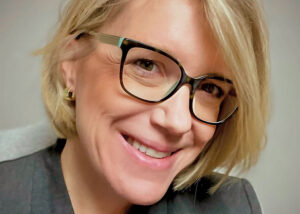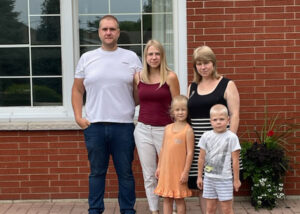One day my normally cheerful, no-nonsense coworker surprised, or I should say shocked, me. She suddenly and briefly opened the door to her past, a dangerous time of war and famine.
“Those days were horrible,” she said fiercely in a low voice. “Things were so bad, they ate people. We never speak of them.”
Just as suddenly, the door swung shut, and she turned away from me and toward other tasks. I was young and curious, but I knew not to pursue her or the topic.
Over the years, I have recalled that moment many times, especially when considering secrets that are held or released.
Later, in grief studies, I learned that, for many survivors of atrocity, secret-keeping is deemed to be a necessary means of coping. To recall and speak of the horrors they witnessed, drags them back into bleak despair and unanswerable questions: “Who could do such terrible things? And why? Where is God, or even caring people, when violence is unleashed? What to make of the fact that I survived and so many others perished?”
Such harsh realities give me pause.
On the one hand, I know the value of unburdening oneself. I have been the recipient of many secrets over the years. Personally and professionally, I make space for deep interactions. Into that space, people unveil secrets, sometimes for the first time. These moments are sacred, as speaker and listener, enfolded in the heart of God, give witness to the truth. The Spirit hovers, bringing courage, providing words, tending wounds and lightening heaviness. We are not the same on the other side of such intimacies.
Given these experiences, I encourage the telling of secrets. To tell a secret is to move towards the truth. I believe God lives in truth and invites us into that same reality. In our inner hearts and in our relationships with each other, the more open and honest we can be about ourselves, the deeper our capacity to connect at intimate and meaningful levels becomes.
Finally, we must examine what privileges and protections are in force, because secrets afford cover for abuse and wrongdoing. The keeping of secrets can perpetuate wrongdoing that should be exposed, enabling oppressors to continue to harm. It can privilege some individuals at the expense of others, by maintaining unjust practices and systems. The tragic legacy of Canada’s Indian Residential School system is but one of many examples of such destructive secret-keeping.
At the same time, it is not a comfortable task. I confess that I have sometimes flinched when a friend or family member shared a disturbing secret. It’s hard to receive such information. Like the biblical teaching, I am tested, for “the [truth] of God is living and active, sharper than any two-edged sword, piercing until it divides soul from spirit, and joints from marrow; it is able to judge the thoughts and intentions of the heart. Before God, no creature is hidden, but all are naked and laid bare . . .” (Hebrews 4:12-13 paraphrased).
Gentle Reader, in spite of the challenges, I assert that truth-telling is a Christian virtue and a quality of healthy families. As you contemplate secrets, the keeping and releasing of them, consider the following: What kind of secret is it? Who will be harmed from the telling of it? Who will be helped? What justice will be unleashed or denied? What level of compassion is present and can be drawn upon? How might healing flow?
They are not easy questions. Yet we are dared to know the truth and allow it to free us.
For an alternative view on secrets, see Melissa’s previous column, “In defence of masks.”
Melissa Miller (familyties@mymts.net) has a passion for helping people develop healthy, vibrant relationships with God, self and others.







Leave a Reply
You must be logged in to post a comment.